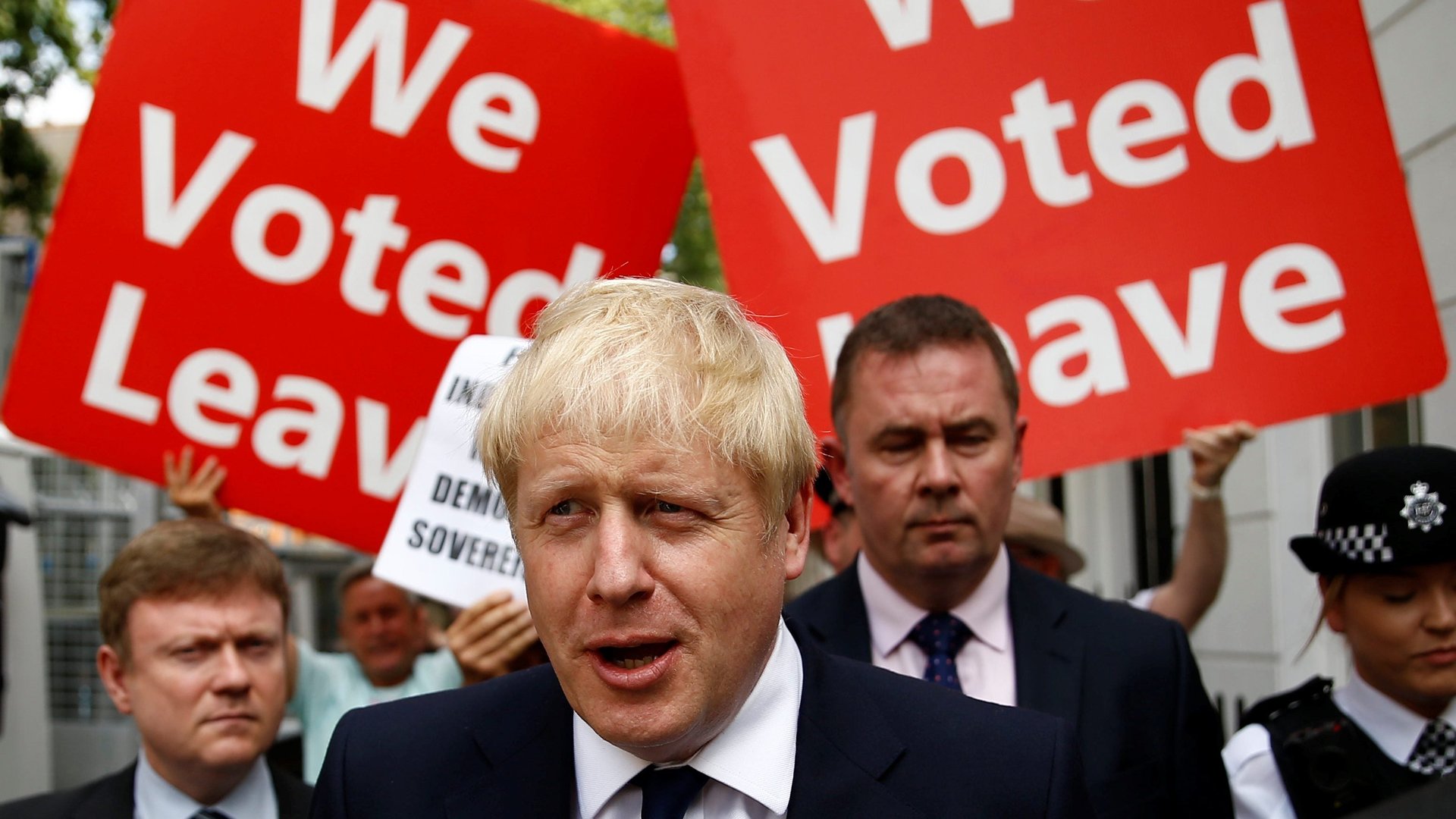Boris Johnson is the next UK prime minister
A tiny slice of British voters just chose Boris Johnson to become the next UK prime minister. Some 92,000 Conservative party members—66% of participating voters—picked the journalist, former foreign secretary, and former London mayor as their next leader, compared to the approximately 47,000 who supported rival Jeremy Hunt.


A tiny slice of British voters just chose Boris Johnson to become the next UK prime minister. Some 92,000 Conservative party members—66% of participating voters—picked the journalist, former foreign secretary, and former London mayor as their next leader, compared to the approximately 47,000 who supported rival Jeremy Hunt.
Johnson’s immediate mandate will be to prepare the UK for its scheduled departure from the EU on Oct. 31. His willingness to consider doing so without a deal—“do or die, come what may”—has spooked lawmakers and businesses. The National Institute of Economic and Social Research said yesterday that a no-deal scenario risks furthering hobbling a stalling economy, increasing the likelihood of the UK entering a recession.
“At this pivotal moment in our history, we again have to reconcile two sets of instincts… Between the deep desire of friendship and free trade and mutual support and security and defense between Britain and our European partners. And the simultaneous desire, equally deep and heartfelt, for democratic self-government in this country,” Johnson told a Conservative party gathering after the announcement. “Do you look daunted? Do you feel daunted? I don’t think you look remotely daunted to me.”
Johnson’s win ends a six-week leadership race sparked by Theresa May’s resignation as prime minister on June 7, an admission of her inability to get the support needed for her proposed withdrawal from the EU. Ten Conservative party candidates were whittled down to two, who were voted on by the Conservative party’s 160,000 members, marking the first time in British history that a prime minister was selected this way.
Johnson is scheduled to assume office tomorrow (July 24) after meeting with the Queen, and will likely begin announcing his team soon after.
Unlike May, Johnson is an outspoken Euroskeptic and was a vocal supporter of Brexit ahead of the 2016 referendum. He has suggested that his hardline Brexit stance could help secure better terms from the EU, which has said it will not renegotiate May’s deal.
But this stance, and Johnson’s preference for brinkmanship, is opposed by many lawmakers, including those within his own party. Last Thursday (July 18), 17 Conservative MPs joined opposition lawmakers in passing an amendment that would prevent the next prime minister from suspending parliament—something Johnson has not ruled out—to force Brexit through.
Already, education minister Anne Milton has resigned in opposition to the prospect of a no-deal Brexit, with finance minister Philip Hammond and justice secretary David Gauke threatening to do so if Johnson became prime minister.
“Boris Johnson has won the support of fewer than 100,000 unrepresentative Conservative Party members by promising tax cuts for the richest, presenting himself as the bankers’ friend, and pushing for a damaging No Deal Brexit. But he hasn’t won the support of our country,” Jeremy Corbyn, leader of the opposition Labour party, tweeted following the vote. “The people of our country should decide who becomes the Prime Minister in a General Election.”
Johnson is likely to avoid an immediate confidence vote, and the UK parliament takes it summer recess from the end of this week, only returning Sept. 3, two months before Brexit is scheduled to take place. The Conservative party has the barest working majority to survive such a vote—just three seats with the backing of 10 Northern Irish DUP lawmakers.
This story has been updated with reactions from Johnson and Corbyn.